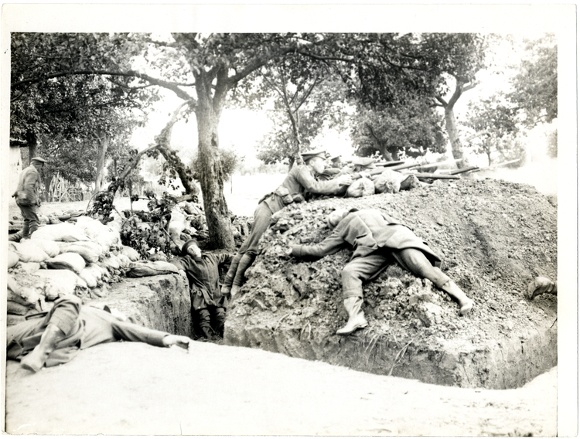Wilfred Owen, selected poems Contents
- Wilfred Owen: Social and political background
- Wilfred Owen: Religious / philosophical context
- Wilfred Owen: Literary context
- Wilfred Owen: 1914
- Wilfred Owen: Anthem for Doomed Youth
- Wilfred Owen: At a Calvary near the Ancre
- Wilfred Owen: Disabled
- Wilfred Owen : Dulce et Decorum Est
- Wilfred Owen: Exposure
- Wilfred Owen: Futility
- Wilfred Owen: Greater Love
- Wilfred Owen: Hospital Barge
- Wilfred Owen: Insensibility
- Wilfred Owen: Inspection
- Wilfred Owen: Le Christianisme
- Wilfred Owen: Mental Cases
- Wilfred Owen: Miners
- Wilfred Owen: S.I.W
- Wilfred Owen: Soldier’s Dream
- Wilfred Owen: Sonnet On Seeing a Piece of Our Heavy Artillery Brought into Action
- Wilfred Owen: Spring Offensive
- Wilfred Owen: Strange Meeting
- Wilfred Owen: The Dead-Beat
- Wilfred Owen: The Last Laugh
- Wilfred Owen: The Letter
- Wilfred Owen: The Parable of the Old Man and the Young
- Wilfred Owen: The Send-Off
- Wilfred Owen: The Sentry
- Wilfred Owen: Wild with All Regrets
S.I.W. - Synopsis and commentary
Synopsis of S.I.W.
Owen’s use of the title S.I.W. for this poem refers to the military abbreviation for Self-Inflicted Wound. The poem is an account of how an ordinary young boy-soldier, Tim, joins up. He is seen off by his family. His father would rather his son was dead than a coward. His mother hopes he will get a Blighty one. Tim’s sisters wish they were able to fight and his brothers send him gifts of cigarettes. Their letters are always the same. Owen refers to Tim as ‘the lad’. His family have no idea about his circumstances thinking that he is safe in a Y.M. (Young Men’s Christian Association) hut because he told them so in order to stop them worrying. He is in fact under fire as he writes letters home.
 Under constant bombardment the boy’s nerves are worn down and he begins to lose his courage. Neither wounds, shell shock nor leave free him from the trap of the trenches. Even death avoids helping him to escape the torture of being under fire. The soldier has seen other men who have shot off their own hands. Their families are never told. Eventually the man can stand the pressure no longer.
Under constant bombardment the boy’s nerves are worn down and he begins to lose his courage. Neither wounds, shell shock nor leave free him from the trap of the trenches. Even death avoids helping him to escape the torture of being under fire. The soldier has seen other men who have shot off their own hands. Their families are never told. Eventually the man can stand the pressure no longer.
His body is found by a party of men out checking the barbed wire. The soldier is dead. At first they think his rifle may have gone off accidentally or he might have been shot by a German sniper. However, they later find an English bullet in his body and realise he has put his rifle to his teeth and shot himself in the head. The letter home to his family tells them that Tim died smiling.
Investigating S.I.W
- Explore the following link: http://www.wilfredowen.org.uk/virtual-tour/cerisy-gailly. This web site suggests that Owen would have had first-hand experience of men with S.I.W.s.
- Make a note of the details which suggest that S.I.W. is based on Owen’s experiences.
Commentary on S.I.W.
Owen is thought to have made his initial draft of S.I.W. at Craiglockhart in September 1917 where he was sent immediately after being treated for shell shock at Cerisy-Gailly. Owen might well have seen S.I.W.s at this casualty clearing station.
S.I.W. begins with an epigraph from a play by W. B. Yeats: The King’s Threshold. This tells the story of a poet once expelled from a King’s court. The poet is determined to make the King aware of the need for poetry and poets. In order to do this the poet goes on hunger strike. He ‘has set his teeth to die’ just as the young soldier in S.I.W. kissed the muzzle with his teeth.
Investigating commentary of S.I.W
- In S.I.W. Owen uses the first name of the soldier, which is the only time he does so in any of his poems. Re-read The Letter, where Owen uses names although not that of the protagonist. What is added to the poems by Owen’s use of the men’s first names?
- In which of these two poems do you think most of Owen’s pity lies and why do you think this is?